Best-In-Class Audio CTE Happens At Fort Hayes
Focusrite in Education's “Expert Guide: How to Fund Your Career Tech Program" shared insights into career and technical education in music and audio engineering at high schools, districts, and postsecondary institutions. This case study shows those insights in action at an exemplary career and technical education (CTE) high school program in Columbus, Ohio. Fort Hayes is an excellent example of how high-quality media arts programs enhance students' lives. They're also a model for developing a close relationship with a school district to garner support and secure the best resources for students.
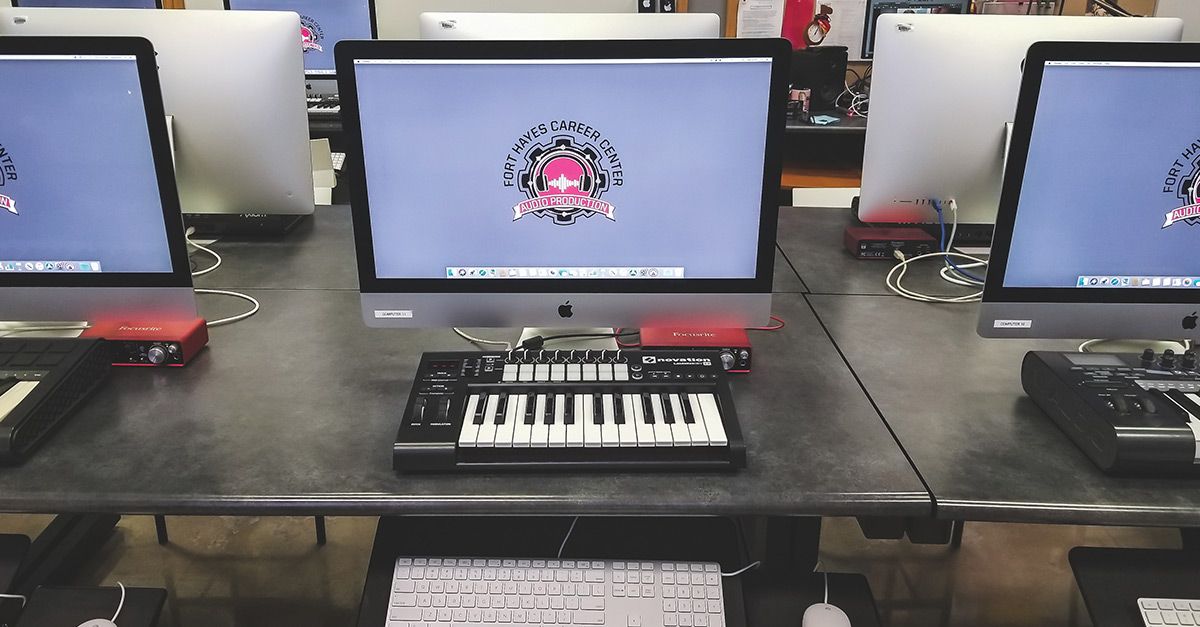
Fort Hayes
Fort Hayes Metropolitan Education Center is part of Ohio's Columbus City Schools district. The state designated Fort Hayes a 'School of Promise', U.S. News & World Report named it one of the 'Top 100 High Schools in America', and President Barack Obama chose Fort Hayes to introduce the American Jobs Act. In 2012, Fort Hayes was also selected as a GRAMMY Enterprise Signature School.
Fort Hayes comprises the Career Center and the Arts and Academic High School. The Career Center offers half-day CTE courses in the media arts, the performing arts (encompassing music, dance, and theater), and the visual arts. Other CTE programs focus on construction, health, and transportation.
Media arts programs include audio production and film/television production. Audio production is funded under Perkins V, The Strengthening Career and Technical Education for the 21st Century Act — and it offers a variety of professional certifications. Enrolled students meet two and a half hours per day for two years to satisfy the program requirements.
Career Center students receive instruction in a state-of-the-art recording studio, which has a 30-station Mac-based MIDI and audio lab, MacBook Air 1:1 implementation for media arts students, and a television studio with professional camera kits. Audio production instructor Ryan van Bibber is the only U.S. recipient to receive a second-level Avid train-the-trainer certification.
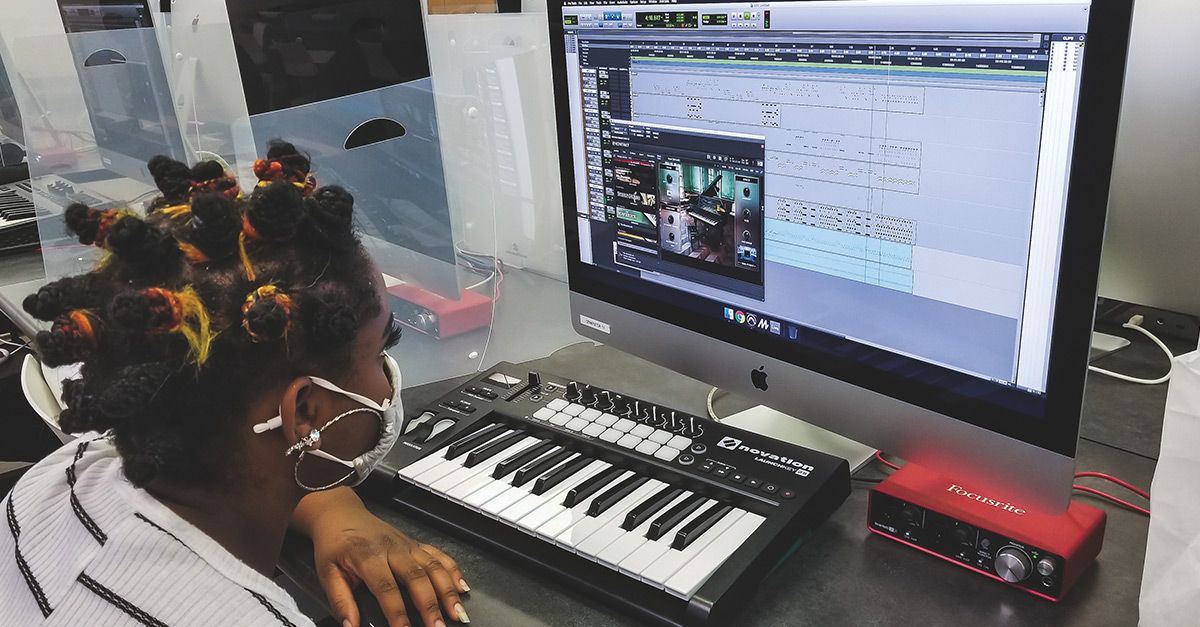
How CTE Programs Benefit Fort Hayes Students
To help fulfill the Career Center's mission “to prepare students for jobs in the community and the world", students are focused on the day-to-day aspects of these career paths
Workforce Development
Students learn by doing: composing, recording, producing, editing, designing graphics, operating cameras, immersing themselves in professional audio tools like Focusrite audio I/O, software tools such as Ableton and Pro Tools, and considering marketing and legal issues. They release original songs, mix and master tracks for other artists, and create original films, music videos, and news packages. They also gain industry professional certifications, participate in competitions like national film festivals and build professional portfolios. This gives them the opportunity to learn from industry professionals before they enter the workforce.
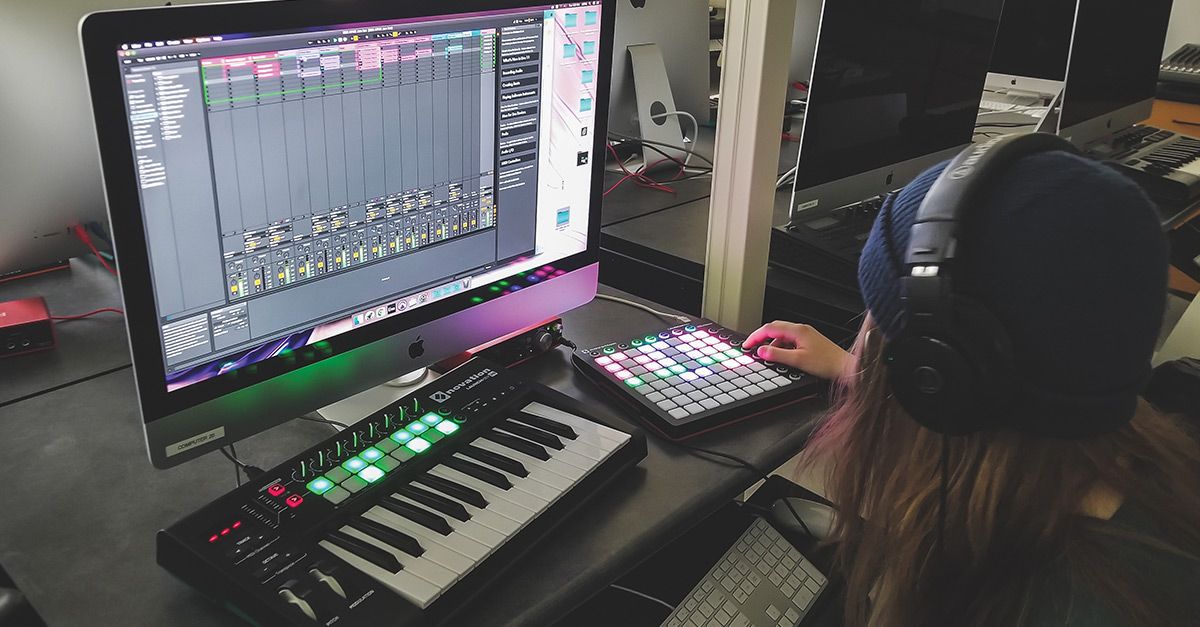
By teaching a range of skills, Fort Hayes introduces students to various career options in music, film, television, and broadcasting. Students who may have only associated working in music with performance will be taught the many components needed to make music possible. These components then become career possibilities in their own lives. Many of these skills are transferrable to opportunities outside of the arts, such as technology and business. No matter the industry, students at Fort Hayes also gain a range of professional skills valued by all employers: collaboration, communication, time management, budgeting, problem-solving, and accountability.
Principal and director Milton Ruffin, Ph.D., also points out the importance of students learning how to “contextualize their creativity," such as working within a time limit for the end product. “Students have to ask themselves if they want people to hear or see what they have to offer, even if it means making the content shorter or otherwise adapting it. And it turns out every kid just wants to be heard, so they figure out how to still be creative within those limits."
Student Passion
Unlike other CTE career clusters, the arts, A/V technology, and communications subjects allow a unique outlet for creativity and personal expression. Because it can be such a personal endeavor, these subjects connect students to a uniquely personal passion that inspires them.
“CTE in the arts is an instant opportunity to evolve individually" - Dr. Ruffin
“CTE in the arts is an instant opportunity to evolve individually," explains Dr. Ruffin. “In a health cluster, for example, there is a given procedure. In the arts, even though we teach techniques and show examples of other works, it allows for spontaneity and organic development. Innovation can happen instantly."
An On-Ramp To Opportunity
Fort Hayes also takes pride in how its CTE programs allow non-traditional students to flourish. This may include students who have not excelled in traditional academic programs. It could also be students interested in music that haven't benefited from band or choir programs upon entering high school. These students may not have found the right setting, but they have passion and talent in these areas.
Through learning a topic they find interesting, acquiring hands-on skills, and receiving the proper encouragement from educators and peers, these non-traditional students thrive in the program and set themselves up for professional and personal adult lives.
As Dr. Ruffin notes, “when you aim a traditional curriculum at non-traditional students, there's a misalignment. They may not have done the prescribed path, but CTE builds an 'on-ramp' to traditional music, electronic music, and so many other subjects and careers." Dr. Ruffin also praises the support from students' parents, who in many cases already understand how a new pathway can help their children succeed.
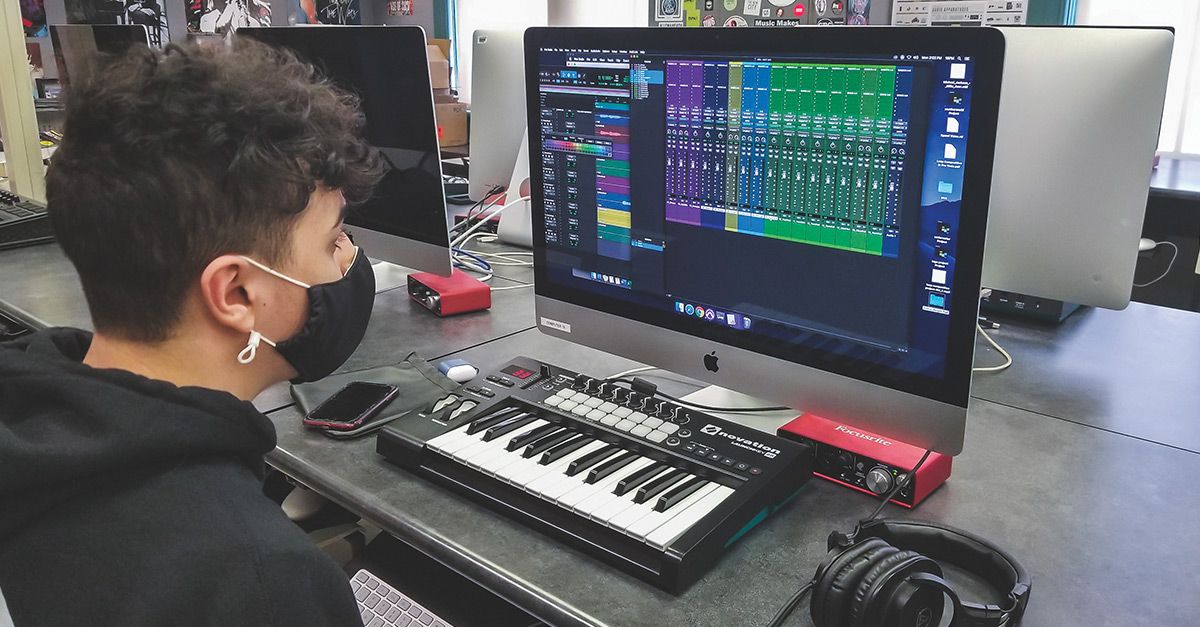
Gaining Support Through Collaboration
Much of Fort Hayes's success comes from having the right support. That support has been the result of cultivating a network, which starts within the school and reaches out to the district.
Principal Ruffin reminds us that “the teacher is the end-user and subject matter expert of the technology, procedures, classroom management, and physical space." That's why he relies on CTE faculty to understand and advocate for the needs of students in his program.
Dr. Ruffin first charges a “Teacher Voice Team" to develop ways to work within the directives and resources set down by the district. He asks his teachers to understand what is available so they can envision what else is possible. Once the implementation of existing policies is in place, the team seeks to understand anything else they may need from the district.
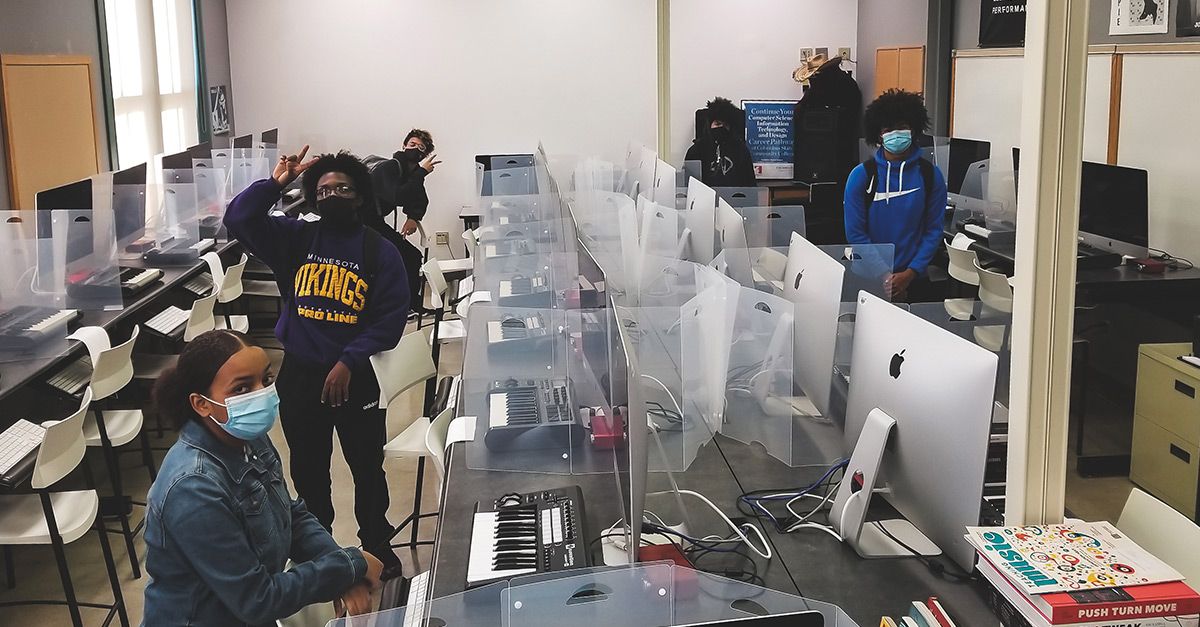
For example, when Columbus City Schools distributed Chromebooks to all students to assist with remote learning during the pandemic, the Fort Hayes team knew that this hardware was not suited to arts instruction. Principal Ruffin was able to lobby his district to provide Macbooks. Starting with 300 machines distributed to students in their visuals arts programs, more are on the way.
In terms of working with his district, Dr. Ruffin emphasizes “being an advocate, not an adversary." He advises “not to attack the process, but to embrace and implement it and then expand on it." Working hard to understand and work within what the district has offered or requires adds a sense of cooperation to his additional requests. He frames those conversations with the district not as rejections, but as ways to remove further barriers to education and make each cohort of students competitive.
In short, Fort Hayes's strategies for support are student-motivated, teacher-driven, and stakeholder-collaborative.
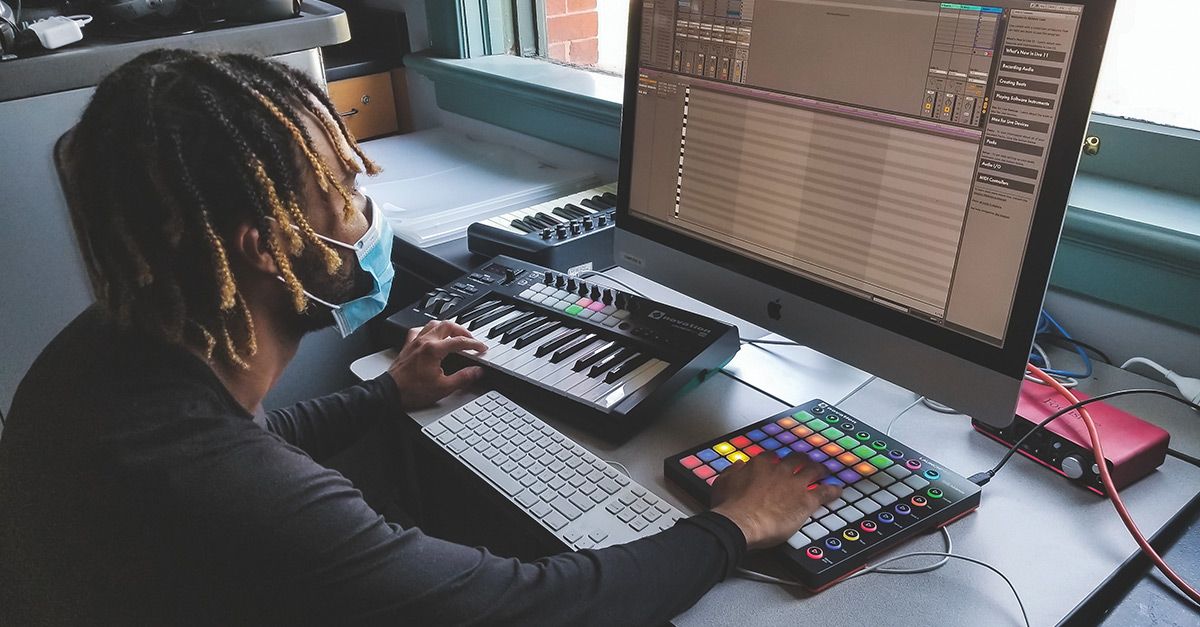
Lessons Learned
We asked Dr. Ruffin how he might advise other educators and decision-makers who want to know how to advocate for their programs and seek support.
“Try to find a model. Does this idea, program, etc., exist anywhere else? If it does, then someone believed in it enough to fund it. Then, figure out how this concept fits within your district's vision. Explain to your district why this concept is needed and what they will gain if it's achieved."
“Don't attach a secondary utility to what you do. For example, “if we have a music engineering program, that will help students learn math." That can make people ask why they don't just fund math directly. And if math scores don't go up, it's seen as a failure. Instead, tell people what music engineering can do that no other program can. Make it an end in itself.
“Tell people what music engineering can do that no other program can. Make it an end in itself" - Dr. Ruffin
"Many administrators may not have a creative background. Some may simply not see the priority. Others may understand its importance but feel uncomfortable advocating for it because they lack the expertise to speak on behalf of the program. You can approach those people. That's how you work within the system, develop and nurture alliances, and bring consistent credibility. In other words, be visible in several circles because evenually, they all intersect. The teacher you help with a ceremony today could be on the school board next week!"
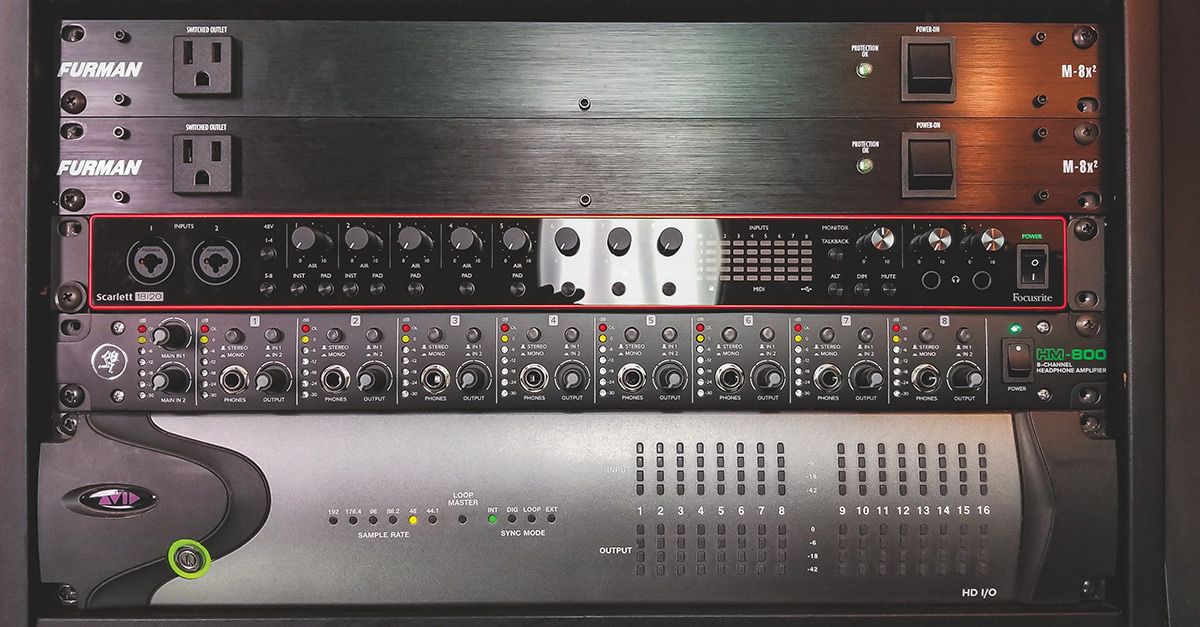
Prepared For Career Success
Fort Hayes students are immersed in professional audio and music hardware and software for four years. They graduate high school knowing how to record music and audio using Focusrite I/O and Pro Tools and compose and create music on Novation controllers with Amplify Studio and Ableton Live. Alongside the professional certifications and experience gained from expert music and audio instructors, Fort Hayes students enter the workforce, community college, and undergraduate degree programs ready for success.

